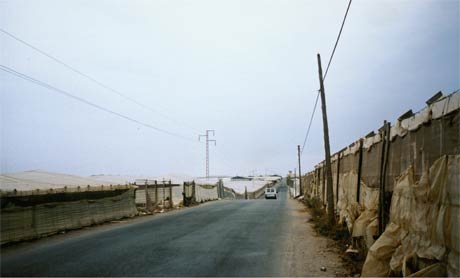
Why does anyone buy pre-washed, bagged salad?
Well, obviously, because it looks so fresh and lovely and it's so clean and convenient, it must be good for you, never mind that it costs a fortune. And because ignorance is bliss. Now, a professor from Imperial College London has gone and ruined it by warning that food-poisoning cases are likely to increase as people buy more salad this way. Pre-washed doesn't mean safe to eat, he said. It can just mean "looks clean but actually is contaminated with salmonella or E coli". Buy a bag of pre-washed salad and you need to wash it all over again.
More than four years ago, I deconstructed a ready-to-eat washed salad bag for my book Not on the Label. I pointed out that between 1992 and 2000, the period during which the new phenomenon of bagged salads took off, nearly 6% of food-poisoning outbreaks were associated with prepared vegetables and salads. A study in 1996 of retail samples of bagged salad found 13% contained E coli.
I was contacted more recently by someone who worked as a "quality controller" in the industry and had long experience of a large salad-washing factory. It was as bad, if not worse, than I said, he told me. The leaves are washed in huge tanks of water that is only changed once a day and merely topped up in between. The mud and dirt builds up. At periods of peak demand, and with pressure on prices, the system gets close to breaking point. Chlorine added to the water to control pathogens was supposed to be computer-regulated, but sometimes they were having to add extra doses by hand.
But it's not just the bugs that bother me. Getting all this salad to us, often out of season from abroad, depends on a hidden army of workers. Sorting, washing, cutting and packing leaves by hand is a labour-intensive business. But we haven't all become so rich that we can afford servants, so the labour all too often is provided by exploited and underpaid migrants living in squalor. The problem continues. Recent inspections by the Gangmaster Licensing Authority uncovered bonded labour and plenty of other abuses in salad production in Britain.
One of the main sources of out-of-season salad for British supermarkets is southern Spain. Vast swathes of Murcia and Almeria have been given over to these thirsty crops. Growing them intensively in monocultures depends on heavy agrochemical use. The miles of greenhouses form one of the bleakest industrial wastelands I've seen. The workforce there depends too on migrants, many of whom live in makeshift cardboard houses without sanitation.
You can tell how worried the industry is from all the work being done. This week's conference on food safety in Aberdeen had a whole session on food-poisoning bacteria in salad. The titles of the papers presented give you a flavour – here's an example: "Microbiological Study of Fresh Herbs from Retail Premises Uncovers and International Outbreak of Salmonellosis".
Have you noticed, too, how few bags claim to be "ready to eat" these days, as they did in the past. Most of the ones I've seen just say "washed" now.
In the US, which suffered three deaths and more than 200 people poisoned by E coli from spinach salad leaves in 2006, the authorities have given up trying to solve the problem at source. That outbreak was traced back to contamination from an intensive cattle feedlot. The Food and Drug Administration has recently sanctioned irradiating salad; in effect, accepting contamination in fields and processing is apparently inevitable.
I actually counted how many washed leaves you get in a £1 bag of salad once. The answer? Two leaves of frisee, one of red radicchio, two of a pale green crunchy variety, and about 18 whole and seven torn tiny dark green leaves about the size of a 2p coin.
There are times when you are under pressure when labour conditions and environmental damage elsewhere are not at the front of your mind. But surely the only point in spending all that money on a bag of salad is that it saves you the bother of washing your leaves. Why buy it if it doesn't?

